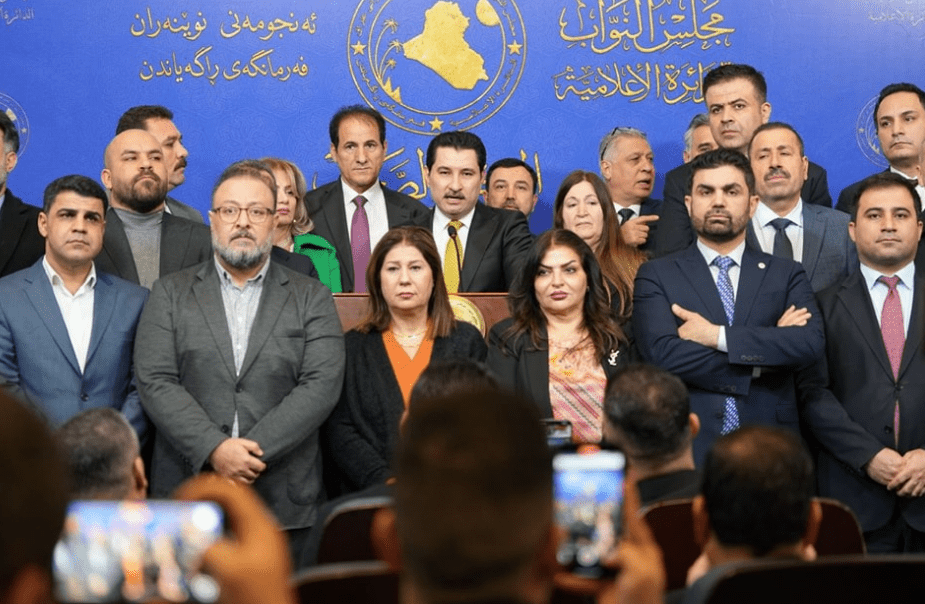By Malak Khaled
Iraq’s parliament passed three controversial laws on Tuesday, leading to public outcry and criticism from human rights activists over the laws’ potential impact and the way they were passed.
What Laws Were Passed?
1)Amendments to the Personal Status Law
These changes allow families to decide whether personal matters like marriage, divorce, and inheritance are regulated under the 1959 Personal Status Law or by Shiite or Sunni sects.
Critics warn this could legalize child marriage since some interpretations of Islamic law, such as the Jaafari school followed by many Shiite religious authorities in Iraq, allow girls as young as nine to marry.
2)General Amnesty Law
This law permits retrials for detainees convicted based on coerced confessions or“information provided by a secret informer.” However, it also allows exemptions for crimes like embezzlement if stolen funds are returned, raising concerns about justice and accountability.
3)Land Restitution Law
This law focuses on resolving Kurdish territorial claims and is less controversial compared to the other two.
Where is the Controversy?
Child Marriage and Women’s Rights
Activists, such as Intisar al-Mayali of the Iraqi Women’s League, warned that the amendments could harm women’s and girls’ rights by making early marriage legal and weakening protections for divorce and inheritance.
Procedural Violations
Lawmakers accused parliament of breaking its own rules, claiming the session lacked the legal quorum, the minimum number of members needed for a vote.
Bundling all three laws into one vote also caused protests, with claims that this was a political compromise to tie the demands from the Shiite, Sunni, and Kurdish sects together to prevent legislative obstruction.
What Happens Next?
Islamic law experts and parliament members have four months to finalize detailed family law codes for Sunni and Shiite sects, which will be subject to further votes. Meanwhile, human rights groups are pushing for stronger protections for women and children.
The passage of these three laws highlights the complex intersection of political bargaining, religious influence, and human rights concerns in Iraq.
While supporters view the changes as steps toward aligning laws with cultural and religious principles, critics remain deeply worried about their potential to undermine protections for women and children.
WE SAID THIS: Don’t Miss…From Prison To Shootings: What’s The Story Behind Iraqi TikTokers Being Targeted



